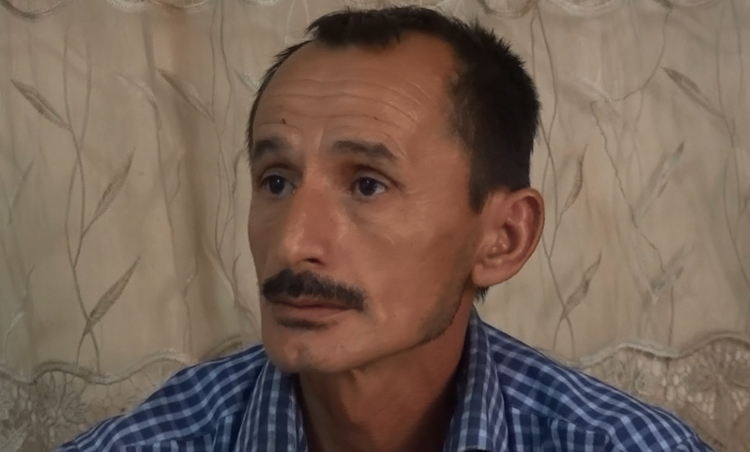Muhammad’s mother, who was diagnosed with cancer, hadn’t been admitted to a specialized hospital in the capital, Damascus, because they are from a stateless Syrian Kurdish family, specifically from the ajanib of al-Hasakah. Doctors at the hospital shouted and kicked them out, a scene which had etched in Muhammad’s mind forever. Muhammad told STJ field researcher the details of this incident through an interview conducted in March 2018.
Muhammad Ameen Ramadan al-Muhammad was born in Hasud village in Qamishli in 1962. He is married with seven children, all of whom are ajanib. Muhammad spoke to STJ about being denied the right to choose his university major because of his statelessness:
“I wanted to study history or media. I had great hopes, but I did not, because I saw how two of my relatives who managed to graduate from university, one from Arabic Literature Department, and the other from Veterinary Medicine, failed in finding employment because of being ajanib. After leaving school I wanted to work as a porter in a grain center, but they did not accept me at first because I was a stateless. After the intervention of a mediator, they gave me the job, but without getting social, health or any other kind of insurance.”
In 2005, Muhammad’s mother was diagnosed with cancer, so he took her to al-Bayrouni Hospital for cancer treatment in Damascus, the only hospital of its kind in Syria, but she wasn’t admitted. The workers even threw her papers at their face and fired them, saying “go the way you come”:
“I still remember how they called the security men to kick us out of the hospital, and how my mother fainted and fell to the ground. I cried then and tried to kill myself by jumping from one of the hospital’s high story windows, but my brother stopped me. By intermediary, my mother finally was admitted at the hospital after we claimed that she was a relative of one of the doctors. In eight days there, no doctor came and gave her an even an injection. We were buying some from outside the hospital at very high prices.”
Being a stateless, Muhammad could not officially register any property or estate in his name, even the small shop he had bought. Muhammad said that he has tried for four years to register his own children in his name in the Civil Status Department in Qamishli City:
“I worked for a while in a restaurant in Damascus, and I was harassed a lot by the employer because of my legal status, as he preferred to hire citizens. We, stateless, are also banned from traveling. I wanted to travel to Lebanon for work. Although traveling there was easy and only required an ID, I couldn’t even do that.“
Following the issuance of Decree No. 49, on naturalization of ajanib in 2011, Muhammad was able to obtain Syrian nationality, but that was too late:
“It was like building you a house after your death. I’ve spent ten years working as a porter without getting any kind of insurance. I was also forced to move and work on the Turkish border because of my legal status. I just need to understand one thing: how it is not permitted for a man to register his own child in his name? Marriage is still a problem among us, stateless Kurds. No one proposed to my three sisters, who are of marriageable age, because of their legal status. The same goes for us, males.”

